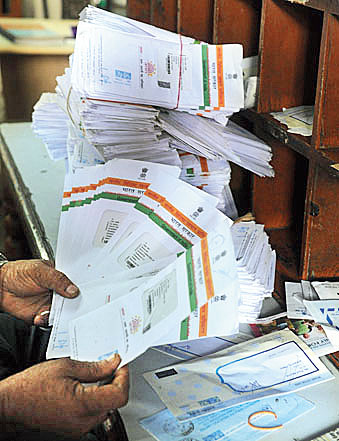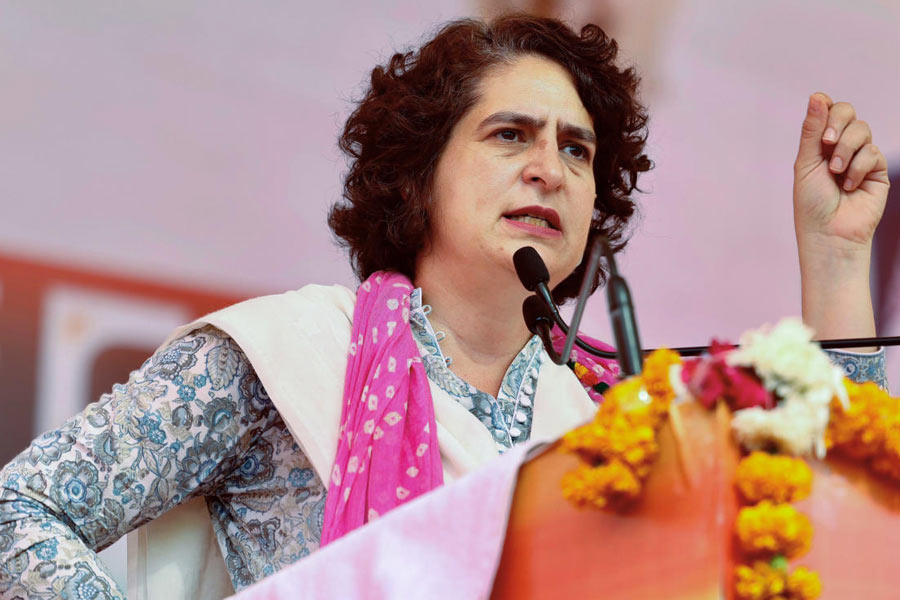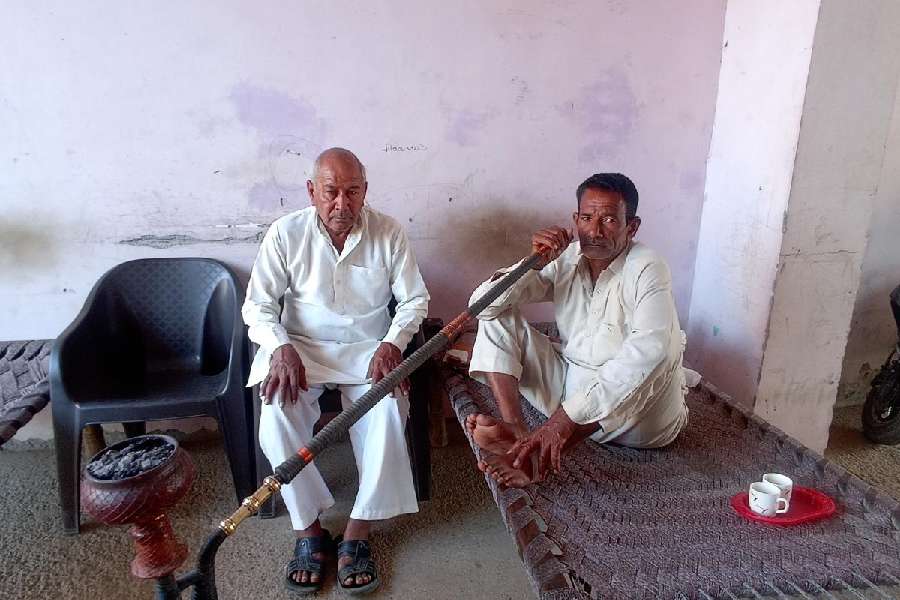Sir — It is alarming that more than half of the world’s sea turtles end up consuming plastic after mistaking it for jellyfish. According to a recent scientific study, swallowing about 14 pieces of plastic increases the risk of their death significantly. Turtles were already an endangered species; now they are slowly nearing extinction. Several other sea creatures, too, confuse plastic debris for food. Every country should undertake strict measures to control the production, use and disposal of plastic items, and promote biodegradable alternatives in order to save the environment.
Bimal Kumar Pradhan,
Calcutta
Right decision
Sir — The Supreme Court has declared the Aadhaar system constitutionally valid but struck down certain sections of the Aadhaar Act, 2016 (“Aadhaar for subsidy valid but blow to Bank-and-Phone Big Brother”, Sept 27). However, it should not repeatedly fall upon the courts to point out basic flaws in governance. Aadhaar, implemented by the Unique Identification Authority of India, was designed specifically to prevent impersonation and wrongful claims for subsidies, and direct transfers of benefits, including under the public distribution system. But it has failed in this function, causing tragic incidents of poor people starving to death after being unable to link their ration cards to Aadhaar. Instances of fraudulent withdrawal of food grains on a large scale, with the use of fake Aadhaar cards, also came up.
It is hardly believable that Aadhaar data are safe with the government when parcels of them were allegedly sold for only a few hundred rupees. Besides, an enormous amount of human effort was required to link crores of mobile phones and an almost equal number of bank accounts to Aadhaar after due verification. Thus, even on the grounds of practicality, the apex court was right to strike down the mandatory linking of Aadhaar with basic services.
Moreover, the citizen’s right to privacy, recently reaffirmed as fundamental, is at loggerheads with the idea of a ‘surveillance State’. Hence, this judgment received universal acclaim. Further, the 480-page dissenting opinion of the judge, D.Y. Chandrachud, will be mined by scholars as a store of judicial wisdom for ages to come. His observations on the Aadhaar Act being passed as a money bill will surely help the Speaker be more discerning of pieces of legislation which come before the Lok Sabha in the future.
M.A. Jamai,
Bangalore

Aadhaar card distribution, Kidderpore Post Office File picture
Sir — The verdict of the five-judge bench of the apex court which, by a majority of four to one, upheld the constitutionality and legality of the Aadhaar Act must be appreciated. The court also directed that sharing of one’s Aadhaar data is not compulsory for opening bank accounts or acquiring new mobile phone connections. However, since there was no explicit stay order in this regard during the hearing of the case, millions of citizens have already shared their data with these service providers, fearing deactivation of services. It is now incumbent upon the Centre to direct all such enterprises to immediately delete the data collected from their customers. Adhering to the ruling, the data must not be stored for more than six months anyway.
Hemant Kumar,
Ambala City, Haryana
Sir — While the transformative potential of the Aadhaar, the world’s largest biometric identity database, is undeniable, its scope should be limited. The Supreme Court has, therefore, rightly struck down Section 57 of the Aadhaar Act, declaring that the consumer’s Aadhaar data are not mandatory for a host of public services. This reduces the pressure of Aadhaar on the common man while rendering it useful for efficient delivery of welfare schemes and subsidies.
One must also heed the lone dissenting opinion of the judge, D.Y. Chandrachud, who noted the government’s repeated violations of the court’s interim orders, and also voiced his misgivings about the Aadhaar Act being passed as a money bill. The finance minister, Arun Jaitley, who lauded the verdict by stating that Aadhaar helps the government save Rs 90,000 crore annually for the disbursal of government schemes, still does not seem to understand that the method undertaken to pass the bill might have set a bad precedent for similar proposals in the Lok Sabha. The deletion of the data already collected by banks and phone companies under a sense of false urgency is another issue that must now be resolved.
Bidyut Kumar Chatterjee,
Faridabad
Sir — The Aadhaar was originally introduced as an instrument of empowerment. But, owing to faulty implementation and inaccuracies in the cards issued to them, many poor and illiterate citizens were deprived of their rightful rations and subsidies. The plight of these people must be addressed.
Mohd. Faheem,
Mumbai










